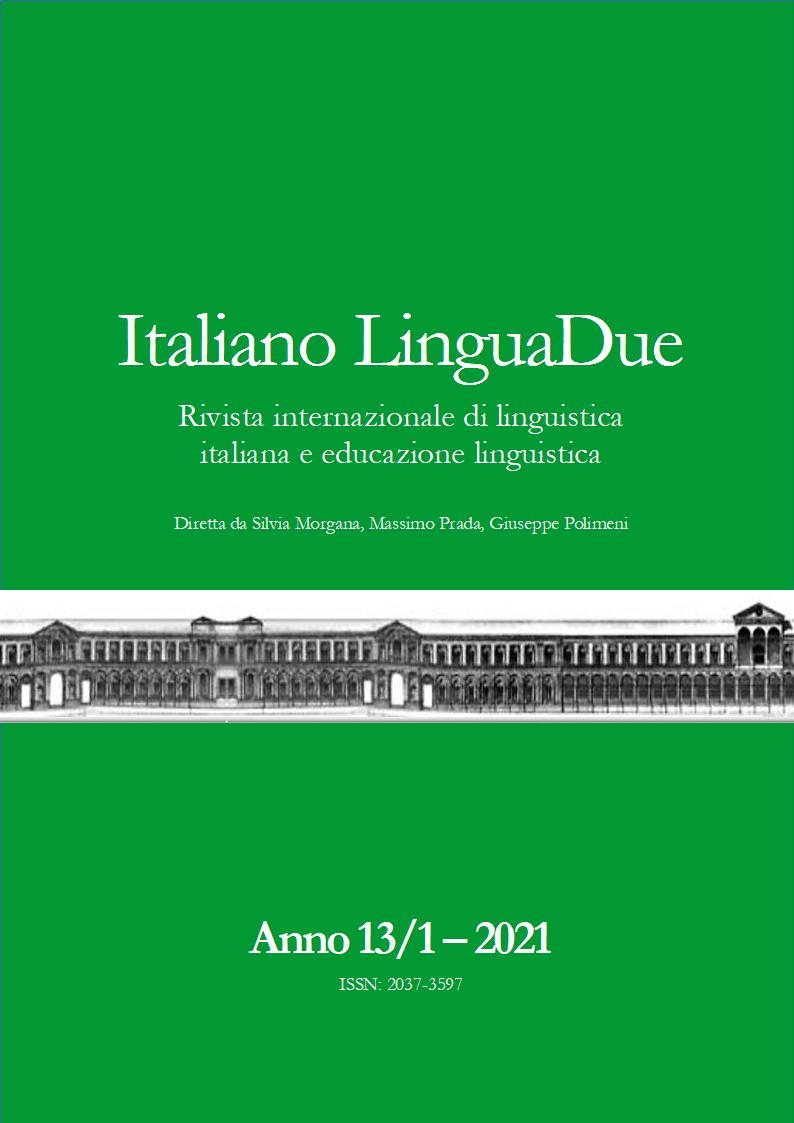BARETTI DAL “CAFFÈ” AL “CONCILIATORE”
DOI:
https://doi.org/10.13130/2037-3597/15914Abstract
Da tempo è stata accertata la continuità di intenti che colloca Il Conciliatore all’estremo della linea aurea della pubblicistica settecentesca. Il rapporto con Il Caffè è quello che emerge con maggior evidenza fin dal Programma della nuova rivista, steso da Pietro Borsieri. L’opera critica di Giuseppe Baretti, geniale ma umorale e polemica come il suo autore, venne attentamente filtrata da Borsieri, prima nelle Avventure letterarie di un giorno, poi nella recensione alla traduzione italiana di An Account of the Manners of Customs of Italy, del 1768, uscita sul Conciliatore nel 1818. A Baretti, nemico giurato dei Verri e convinto detrattore del valore civile della battaglia del Caffè, in quegli scritti veniva così restituita una nuova dignità, che puntava più sulle qualità dell’uomo che sulla sua verve di polemista, in parallelo alla pubblicazione delle sue Opere promosse allora dall’attivissima editoria milanese. E la versione italiana dell’Account, che incrociava testi capitali nella definizione del “carattere” italiano, dalla Corinne di Madame de Staël all’Histoire di Sismondi, ebbe una parte non secondaria nell’impugnazione degli stereotipi più corrivi attribuiti all’Italia dai protagonisti del Grand tour.
Baretti, from Il caffè to Il Conciliatore
The continuity of intentions that places Il Conciliatore at the far end of the golden line of eighteenth-century publishing has long been ascertained. The feature that most clearly emerges from what Pietro Borsieri wrote in the Program of this new magazine was its relationship with Il Caffè. The critical work of Giuseppe Baretti, brilliant but humoral and polemical like its author, was carefully filtered by Borsieri. This occurred first in Avventure letterarie di un giorno, then in the review of the Italian translation of An Account of the Manners of Customs of Italy (1768), published in the Il Conciliatore in 1818. Baretti, a sworn enemy of the Verris and a convinced detractor of the civil value of the battle of the Caffè, was thus given a new dignity in those writings, which focused more on the qualities of the man than on his verve as a polemicist, in parallel with the publication of his Works promoted at the time by the very active Milanese publishing house. Moreover, the Italian version of the Account, which included texts that were fundamental in the definition of the Italian “character”, from Madame de Staël’s Corinne to Sismondi’s Histoire, played a significant role in challenging the rashest stereotypes attributed to Italy by the protagonists of the Grand Tour.




